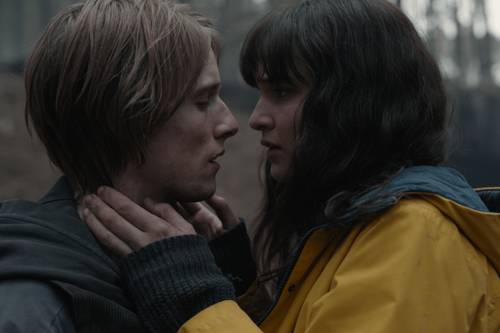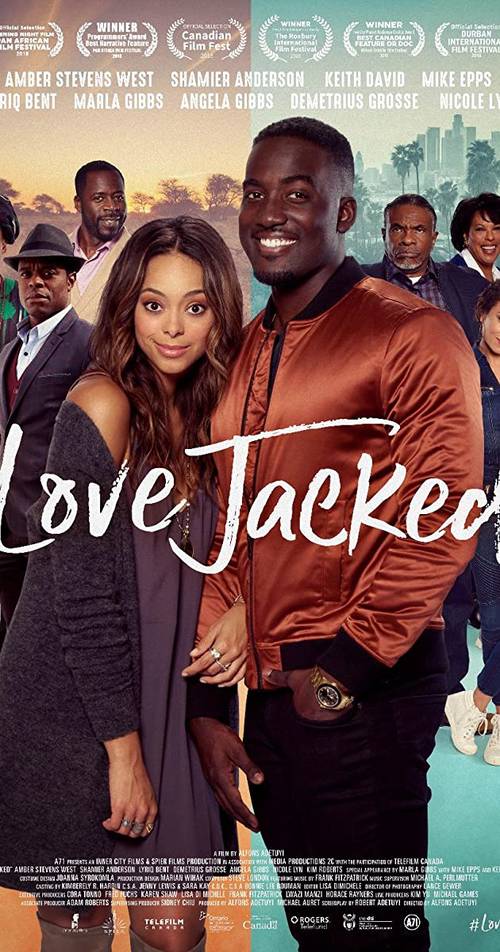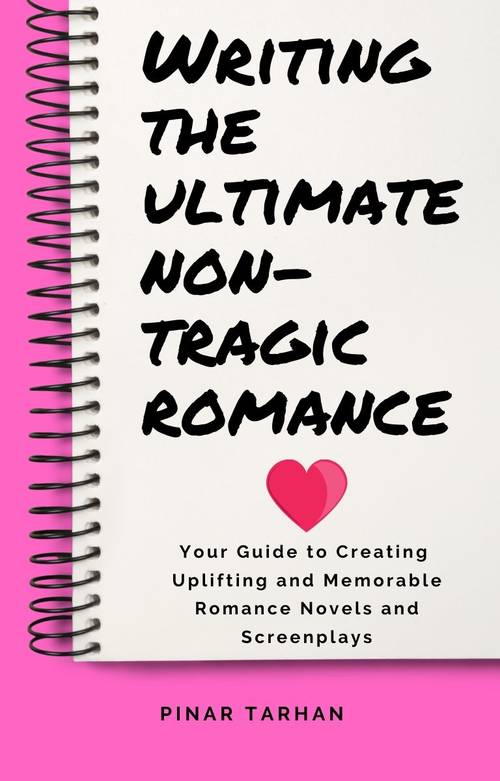
Have you seen the TV series Dark? Dark is a highly fascinating and addictive German mystery series that revolves around time travel and whether it is all a big repetitive loop.
Obviously, it is so much more than that, but there are so many brilliantly woven storylines and interacting complex characters that saying any more could result in a spoiler.
Give it a shot.
So what does have Dark have to do with romance? In addition to having some intense and shocking romantic storylines itself, the “loops” and how certain things repeat themselves reminded me of how a lot of people write romance stories, especially tragic romances.
Loops can be understood, loved, appreciated or expected with science-fiction. (Not that Dark is predictable.) But with romance?
Now, being predictable and repetitive aren’t bad in and among themselves.
As a huge fan of romantic comedy, I am quite fond of happy endings, original meet cutes, and the “two strangers have to spend time together in the most unexpected/unorthodox ways” situations.
You almost always know where certain things are going, and you welcome it.

In the adorable 2018 romcom Love Jacked, Maya falls in love with a South African man and gets engaged. But when he cheats on her, she has to pretend pool hustler Malcolm is her fiancé to save face from her critical father. But now Canadian Malcolm has to pretend he is South African and sell it to the African culture obsessed uncle of the family…
Yes, we all know what will happen to Malcolm and Maya. Imagine how disappointed we would be if the movie ended like,
“Thanks for your help. See you never.”
“Yeah, sure thing. Best of luck in your life.”
Yikes.
Or, you know, if Maya learned she had a tumor and six months to live.
Exactly.
We love romcoms because they tend to be funny, uplifting, hopeful, and romantic. And there is a lot the writer can play with while bringing freshness as the characters grow more attracted to each other.
You can do the same with romantic dramas, while of course the comedy will be gone or diminished.
But sometimes, the writer seems more interested in making the audience cry or making their story more memorable by making it tragic that the story no longer feels authentic. The journey of the characters and the conflicts they face feel forced.
Or they just seem like you saw it a million times before, and not in a way that you enjoy.
Familiarity is a good thing as long as it is welcome.
Let’s combine certain elements and you tell me if you are bored yet.
Boy and girl meet. Fireworks. But one of them is reluctant to start something because – drumroll! – they have cancer. Eventually, the sick character will get over their fears. These two will be together until death tears them apart. But, oh, the surviving one will have grown and will carry the memories.
Do you want to read or watch this story?
Probably not. Not unless I create two very compelling characters, come up with highly unlikely but exciting scenarios for their dates and encounters and their reactions, and whip up witty dialogue.
Then, if I’m making a film, cast two of your favorite actors. Shoot gorgeous cinematography. Get a skilled director. Invest in an amazing soundtrack.
And… cross my fingers.
Because how many times have you seen this story?
Look, I get it. Cancer is real. It is a horrible disease. It is hard to run into anyone who hasn’t experienced it, either themselves or through a loved one. My grandfather died of cancer.
So, I know.
But just because something is common in real life, it doesn’t have to dominate your writing – especially if it isn’t a way for you to deal with your own condition or the condition of someone you love.
If you or a loved one suffered from it, then by all means, write whatever you need to feel better. Get it out of your system. Put it out there, and help others who have gone through similar experiences.
But that is not the story I’m helping you with right now.
Right now, with this post and my book Writing The Ultimate Non-Tragic Romance, I’m targeting writers and readers who prioritize entertainment and escapism over depressing realism.
I love a happy story, and a happy ending, don’t you?
I love falling in love with the romance in front of me and living vicariously through these characters.
And I love helping my readers do the same.
Make your audience smile. Make them laugh. Make them fall in love, and celebrate the happy ending on the page or on the screen.
Art doesn’t always have to imitate life. And even life itself isn’t always depressing or disappointing.
Sometimes, life is just amazing!
So I took a bunch of my favorite romantic movies, analyzed what worked and why, and I created a guidebook on how to create a happy romantic story people will remember.
I wrote about films instead of books because it will be easier for you to remember the film’s plot points if you have already seen it (and get a refresher through the trailer) or just take 90 minutes to watch it.
And while I recommend you to read as well as watch romances, a lot of the romantic movies I picked are based on books. So you can do both. And you can see that the story has appealed to people on different media.
Can you ever not create a sick character in a happy romance, or at least a happy-ending romance?
You can.
Instead of killing off the character, you can write about the journey of their recovery or a happy-for-now ending. I included such examples in the book.
You can also research and find lesser-known (but still real) diseases and inform people of something they might not have otherwise heard about and do some good public service while you are at it.
At this point, I’m honestly pleasantly surprised when a character is sick, and it is not cancer or Alzheimer’s.
You can also not kill your characters for a nice change, even if it is a drama.
If you want to make your audience cry, you can still do it without killing people. Life is full of ups and downs.
So what does Writing the Ultimate Non-Tragic Romance cover? Including but not limited to:
- My favorite romantic comedies (well, some of them. It is only one book) and what makes them work/memorable,
- My favorite romantic dramas with happy endings (ditto) and what makes them work/memorable,
- Mixing other genres with your romance – genres like mystery, horror, action, adventure, sc-fi, or fantasy,
- Turkish romantic comedies and dramas (because I’m Turkish, and it is fun to go outside of Hollywood sometimes),
- Exceptions – when unhappy endings and dead characters work, aka when your audience will forgive you for them,
- Romance book suggestions (because you still have to read!)
- Overused tropes,
- Realism vs. escapism: Just how realistic do you need to be? And if some of the most common complaints about fictional characters are justified,
- Real life ethics vs. fictional story worlds: What characters can or should get away that we wouldn’t condone in real life,
- Help with writer’s block and overwhelm,
- What you should do in addition to writing.
*
The book is 2.99, but you can read it for free if you are a Kindle Unlimited member. I’m currently working on creating different formats.
Want a free chapter? Subscribe below to read Chapter 4: Romantic Dramas with Happy Endings.
